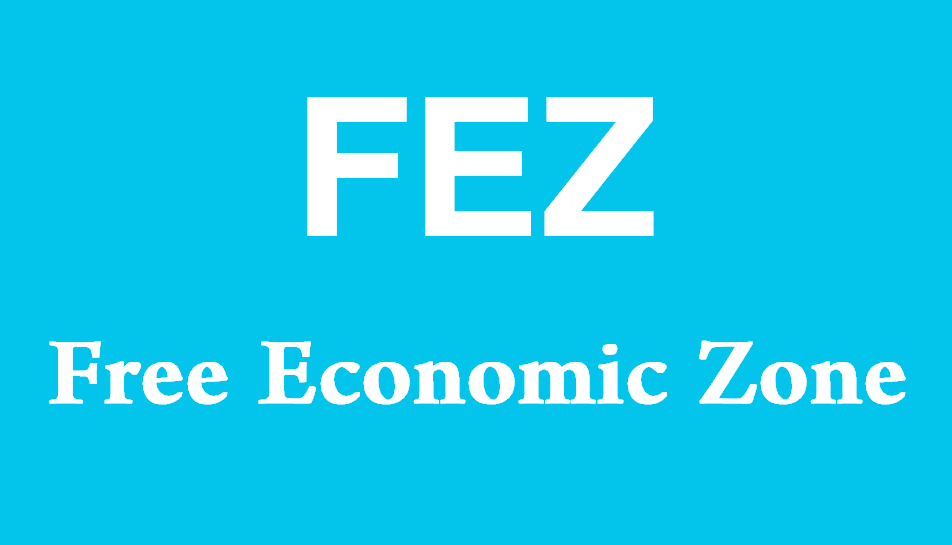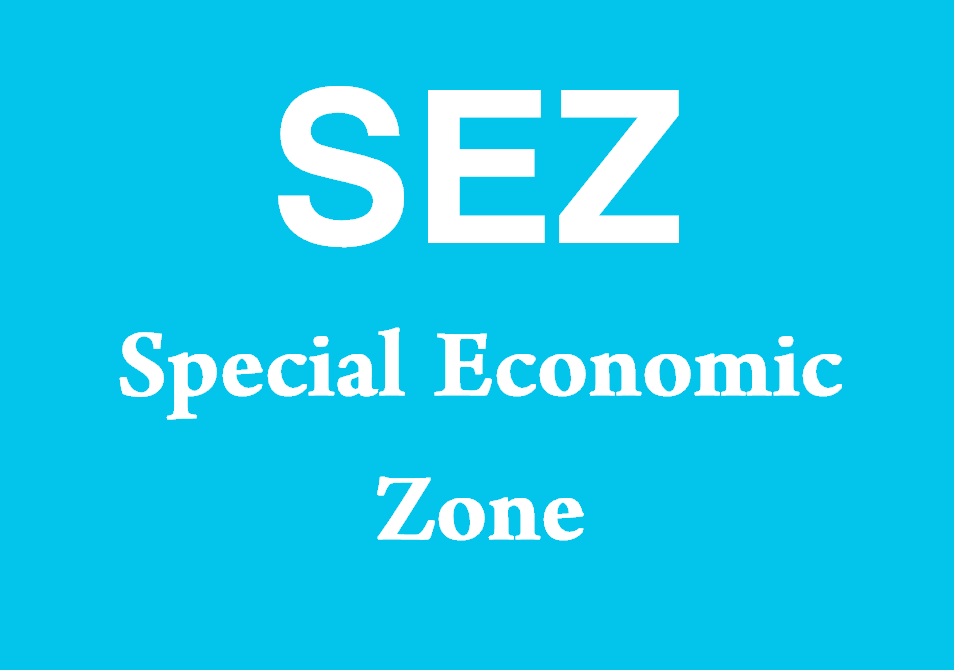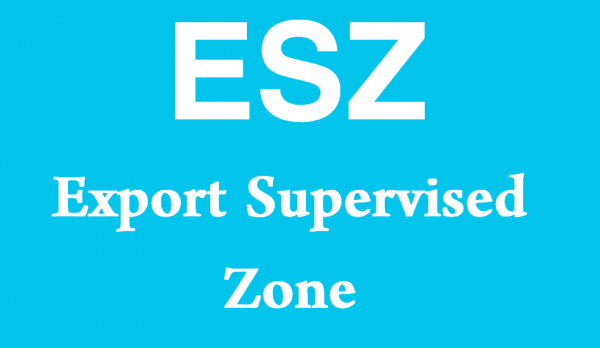What does FEZ stand for?
FEZ stands for Free Economic Zone. A Free Economic Zone is a designated area within a country where businesses enjoy economic advantages such as tax exemptions, reduced regulations, and simplified customs procedures. These zones are established to attract foreign investment, boost economic activity, and promote export-oriented growth. Understanding the concept and benefits of Free Economic Zones is essential for businesses and policymakers aiming to foster economic development and international trade.

Comprehensive Explanation of Free Economic Zone
Definition and Purpose
What is a Free Economic Zone (FEZ)?
A Free Economic Zone (FEZ) is a specific geographic area within a country that offers favorable economic policies and incentives to attract foreign and domestic investment. These zones are designed to promote industrialization, boost exports, and create employment opportunities by providing a more business-friendly environment compared to the rest of the country.
Objectives of Free Economic Zones
The primary objectives of establishing Free Economic Zones are:
- Attracting Foreign Investment: Providing a conducive environment for foreign investors through tax incentives and regulatory ease.
- Boosting Exports: Enhancing the country’s export capabilities by offering logistical advantages and reduced trade barriers.
- Economic Diversification: Encouraging the development of diverse industries and reducing dependence on traditional sectors.
- Job Creation: Generating employment opportunities and contributing to local and national economic growth.
- Technological Advancement: Facilitating the transfer of technology and skills through foreign direct investment.
Characteristics and Types of Free Economic Zones
Key Characteristics
Free Economic Zones typically feature:
- Tax Incentives: Reduced or exempted corporate income taxes, value-added taxes (VAT), and customs duties.
- Regulatory Flexibility: Simplified business registration processes, fewer restrictions on foreign ownership, and relaxed labor regulations.
- Infrastructure Support: Advanced infrastructure, including transportation networks, utilities, and communication systems, tailored to business needs.
- Customs Efficiency: Streamlined customs procedures and duty-free import of raw materials and intermediate goods.
- Access to Markets: Strategic locations near ports, airports, and trade routes to facilitate access to international markets.
Types of Free Economic Zones
- Export Processing Zones (EPZs): Focus on manufacturing goods for export, offering duty-free import of raw materials and equipment.
- Free Trade Zones (FTZs): Facilitate trade and logistics activities, allowing goods to be imported, stored, and re-exported without customs intervention.
- Special Economic Zones (SEZs): Broader in scope, SEZs can include manufacturing, services, and commercial activities with comprehensive incentives.
- Industrial Parks: Designated areas for industrial development, providing infrastructure and incentives for manufacturing and production.
- Technology Parks: Focus on research, development, and high-tech industries, offering support for innovation and technological advancement.
Global Examples of Free Economic Zones
Jebel Ali Free Zone (JAFZA), UAE
JAFZA is one of the largest and most successful Free Economic Zones globally, located in Dubai. It hosts thousands of companies from various industries, offering state-of-the-art infrastructure, strategic location near Jebel Ali Port, and extensive business incentives.
Shenzhen Special Economic Zone, China
Established in 1980, Shenzhen SEZ transformed a small fishing village into a global manufacturing and technology hub. The zone attracted massive foreign investment, becoming a model for other SEZs in China.
Colón Free Zone, Panama
The Colón Free Zone is one of the largest free trade zones in the Americas, serving as a major distribution center for goods entering and leaving Latin America. Its strategic location near the Panama Canal provides significant logistical advantages.
Masan Free Trade Zone, South Korea
Masan FTZ is a well-established zone focusing on export-oriented manufacturing. It offers tax exemptions, customs benefits, and advanced infrastructure to support businesses in electronics, textiles, and machinery.
Mauritius Freeport, Mauritius
The Mauritius Freeport is a thriving logistics and distribution hub in the Indian Ocean region. It provides a favorable environment for trade and re-export activities, with extensive warehousing and logistics facilities.
Benefits of Free Economic Zones
Attracting Investment
FEZs attract both foreign and domestic investment by offering favorable economic conditions, such as tax breaks, reduced regulatory burdens, and enhanced infrastructure. This investment leads to increased economic activity and growth.
Enhancing Export Competitiveness
By providing logistical advantages and duty-free access to raw materials, FEZs boost the export competitiveness of businesses. This results in higher export volumes, increased foreign exchange earnings, and improved trade balances.
Job Creation and Skill Development
FEZs generate employment opportunities by attracting industries and businesses. The presence of diverse industries also facilitates skill development and technology transfer, contributing to the overall development of the workforce.
Economic Diversification
FEZs encourage the development of various industries, reducing dependence on traditional sectors such as agriculture or mining. This diversification strengthens the economy and reduces vulnerability to sector-specific downturns.
Technological Advancements
FEZs often attract high-tech industries and research and development activities, fostering innovation and technological advancements. This enhances the country’s competitive edge in global markets.
Challenges and Criticisms
Regulatory and Governance Issues
While FEZs offer regulatory flexibility, they may face challenges related to governance, legal disputes, and enforcement of contracts. Clear legal frameworks and effective governance are essential to address these issues.
Economic Disparities
The benefits of FEZs may not always be evenly distributed, leading to economic disparities between the zones and the rest of the country. Policymakers must ensure that the advantages of FEZs contribute to broader economic development.
Environmental Concerns
Industrial activities in FEZs can lead to environmental degradation if not properly managed. Sustainable practices and environmental regulations are necessary to mitigate negative impacts and ensure long-term viability.
Risk of Overdependence
Countries may become overly dependent on FEZs for economic growth, neglecting the development of other sectors. A balanced approach is needed to ensure sustainable and inclusive economic development.
Best Practices for Managing Free Economic Zones
Comprehensive Planning
Effective FEZs require comprehensive planning, including site selection, infrastructure development, and policy formulation. Engaging stakeholders and conducting thorough feasibility studies are critical for success.
Strong Legal Framework
A robust legal framework ensures clear regulations, property rights, and dispute resolution mechanisms. This provides certainty for investors and enhances the credibility of the FEZ.
Infrastructure Development
High-quality infrastructure, including transportation networks, utilities, and communication systems, is essential for the success of FEZs. Continuous investment in infrastructure upgrades and maintenance is crucial.
Environmental Sustainability
Implementing sustainable practices and environmental regulations ensures that FEZs contribute to long-term economic growth without compromising environmental integrity. This includes waste management, energy efficiency, and pollution control.
Monitoring and Evaluation
Regular monitoring and evaluation of FEZ performance help identify areas for improvement and ensure that objectives are being met. This includes tracking investment levels, export volumes, employment generation, and environmental impact.
Future Trends
Digital Free Economic Zones
The rise of digital economies has led to the development of Digital Free Economic Zones, which cater to technology and e-commerce businesses. These zones offer incentives for data centers, software development, and online trading platforms.
Green Free Economic Zones
Sustainability is becoming a priority, and Green Free Economic Zones are emerging to promote environmentally friendly business practices. These zones focus on renewable energy, waste management, and green manufacturing processes.
Integration with Global Value Chains
FEZs are increasingly integrating with global value chains, providing end-to-end solutions for manufacturing, logistics, and distribution. This enhances their role in global trade and supply chain networks.
Notes to Importers
Understanding the Impact of Free Economic Zones
For importers, understanding the advantages and operational dynamics of Free Economic Zones is crucial. FEZs offer significant benefits, including tax incentives, streamlined customs procedures, and efficient logistics, which can optimize supply chains and reduce costs.
Key Considerations for Importers
Selecting the Right Free Economic Zone
Importers should carefully select FEZs based on factors such as location, infrastructure, industry focus, and available incentives. Conducting due diligence and evaluating the suitability of an FEZ for specific business needs is crucial.
Compliance with Regulations
Understanding and complying with the regulatory requirements of FEZs is essential for smooth operations. Importers must stay informed about customs procedures, tax policies, and legal obligations to avoid potential issues.
Strategic Planning
Strategic planning is vital for maximizing the benefits of FEZs. Importers should develop strategies for inventory management, logistics, and distribution to take full advantage of the efficiencies offered by FEZs.
Sample Sentences Using FEZ
- “The company established a manufacturing plant in the FEZ to benefit from tax exemptions and streamlined customs procedures.”
- Meaning: The company set up a factory in the Free Economic Zone to take advantage of tax benefits and easier customs processes.
- “Importers can significantly reduce costs by utilizing bonded warehouses within an FEZ.”
- Meaning: Businesses can save money by using storage facilities in a Free Economic Zone where goods are exempt from duties until released.
- “The FEZ offers state-of-the-art logistics infrastructure, making it an ideal location for international trade operations.”
- Meaning: The Free Economic Zone provides advanced logistics facilities, making it suitable for global trading activities.
- “Companies in the FEZ benefit from regulatory flexibility and support services that enhance business efficiency.”
- Meaning: Businesses operating in the Free Economic Zone enjoy less stringent regulations and additional services that improve operational efficiency.
- “Expanding into an FEZ allows importers to access new markets and improve their global supply chain.”
- Meaning: Moving into a Free Economic Zone helps businesses reach new markets and enhance their international supply chain management.
Other Meanings of FEZ
| Acronym | Full Form | Description |
|---|---|---|
| FEZ | Foreign Exchange Zone | An area designated for currency exchange activities. |
| FEZ | Festival Enthusiasts Zone | A dedicated area for festival-goers, often providing special amenities and activities. |
| FEZ | Field Exploration Zone | A designated area for scientific exploration and research. |
| FEZ | Fashion Event Zone | An area designated for hosting fashion shows and related events. |
| FEZ | Future Expansion Zone | An area set aside for future development and growth. |
| FEZ | First Entry Zone | The initial area where goods or passengers enter a country, often associated with customs and immigration. |
| FEZ | Flexible Employment Zone | An area offering flexible work arrangements and employment opportunities. |
| FEZ | Fitness and Exercise Zone | A designated area for physical fitness activities and exercise programs. |
| FEZ | Food Entertainment Zone | An area featuring a variety of food stalls, restaurants, and entertainment options. |
| FEZ | Forensic Examination Zone | A specialized area for conducting forensic examinations and investigations. |
| FEZ | Family Education Zone | An area focused on providing educational resources and activities for families. |
| FEZ | Friendly Environment Zone | A designated area promoting environmentally friendly practices and sustainability. |
| FEZ | Future Entrepreneurs Zone | An area dedicated to supporting and nurturing future entrepreneurs and startups. |
| FEZ | Festival Entertainment Zone | A section within a festival dedicated to entertainment and performances. |
| FEZ | Free Expression Zone | An area where individuals can freely express their opinions and ideas. |
| FEZ | Fine Arts Exhibition Zone | An area designated for showcasing fine arts and cultural exhibits. |
| FEZ | Financial Education Zone | An area focused on providing financial literacy and education resources. |
| FEZ | Frontier Exploration Zone | A designated area for exploring new frontiers and conducting pioneering research. |
| FEZ | Film Exhibition Zone | An area dedicated to screening films and hosting film-related events. |
| FEZ | Free Emission Zone | An area designated for low-emission or zero-emission vehicles and activities. |






